The Hundred Languages of Children – Understanding Emergent Curriculum
The child is made of one hundred.
The child has a hundred languages,a hundred hands,a hundred thoughts,a hundred ways of thinking, of playing, of speaking.A hundred, always a hundred,ways of listening,of marveling,of loving,a hundred joys for singing and understanding,a hundred worlds to discover,
a hundred worlds to invent,a hundred worlds to dream.The child has a hundred languages (and a hundred hundred hundred more),but they steal ninety nine.The school and the culture separate the head from the body.
They tell the child:to think without hands,do without heads,to listen and not to speak,to understand without joy,to love and to marvel…only at Easter and Christmas.They tell the child:to discover the world already there and of the hundred they steal ninety nine.They tell the child:that work and play,reality and fantasy,science and imagination,sky and earth,reason and dream,are things that do not belong together.And thus they tell the child that the hundred is not there.The child says no way. The hundred is there.Loris Malaguzzi, Italian Early Childhood Education Specialist, 1994.
What are your thoughts? Does the mainstream school system inhibit the child’s capacity for imagination, original thought, invention, dreaming? Are our schools and teachers resourced sufficiently to cope with the individual learning languages of our children? Is an individual’s capacity for creativity less important then their intellect? How can we support our schools to support out children to develop as well rounded, intelligent and creative thinking individuals?
I welcome your thoughts and comments. Let’s have a conversation about the hundred languages of children.
Read more of the Understanding Emergent Curriculum series;

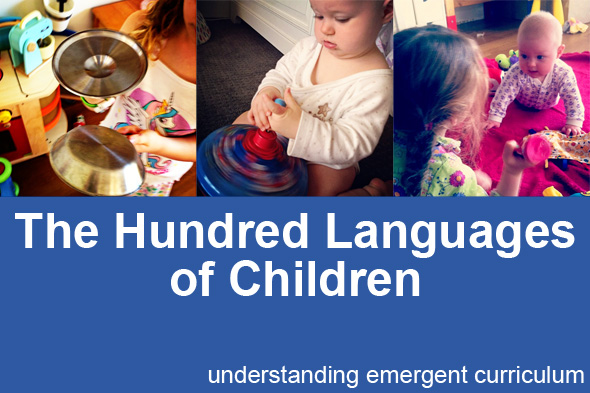


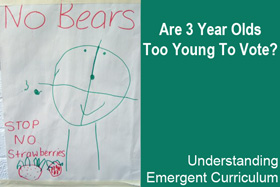
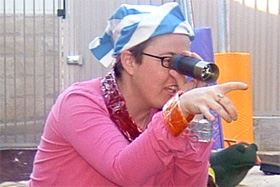

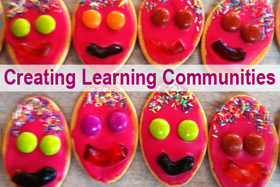
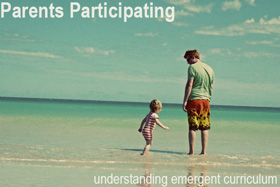
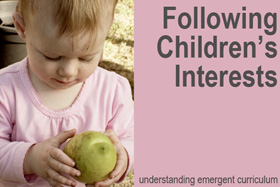

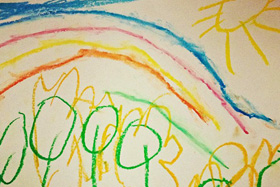
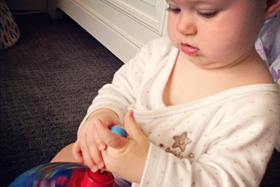

No schools do not cope with the child who tries to speak and do and think a hundred at a time – they try to make them conform. As a parent of a child who walked to a different drum to the rest of the world, it is hard for the child, it is hard for the siblings and it is hard for the parents who do their best to encourage the uniqueness of all their children. But it is not only schools but society in general that does not cope with those that do not conform, for conformity is the glue that holds society together – or is it? With so few resources and such big classes what hope do teachers have but to mould them all to the same formula – those that don't fall through the cracks. Do we as a society have to change to allow all of our children to reach their full potential?
I believe, for the most part, schools do stifle children's creativity. Most schools do not offer flexibility, options (in terms of content students can elect to study and assessment methods) and are rigid in their approach. Difference is often not valued and students and teachers often have to conform to set criteria to achieve "success". Success isusually deemed as achieving an "A" in an assessment piece. Assessment is generally idolised, yet there is so much that is not measured in such instruments.
I was fortunate enough to teach in a school where students very much led their curriculum choices and chose the ways in which they could demonstrate their knowledge. Themes were used each term to determine the content base and then students would negotiate with the teacher a particular area of interest they were keen to explore further. This kind of teaching was far more rigourous than using text books. It meant that there was a great deal of conferencing between the student and teacher. Thinking skill strategies were employed (Edward De Bono's Six Hats and Gardiner's Multiple Intelligences to name but two) to explore content. Students produced work of an extraordinarily high quality. These students were excellent problem solvers, often analysed situations with a great deal of maturity and were by far the most creative, articulate students I have taught (I taught secondary school students for ten years before becoming a SAHM).
I wrote an article for a newspaper (which was published) about my concerns with the current education system and my ideal classroom. It is in my archives in the month of March for this year, first blog post that comes up for the month, titled: I believe a change is needed.(Sorry, but I can't seem to post the direct link)
I think that most schools currently only cater to children who learn in a particular kind of way – and that does shut down creativity and different approaches. It's sad because many children would learn more quickly if we could accomodate their style.
This is not entirely schools/teachers fault – we need to provide more resources so that classes can be smaller. We also need to treat teachers like real professionals – instead of assuming they have a job with lots of holidays (they don't).
I think it would be nice if we could have smaller classes and move out of the classroom more. Parents also need to accept responsibility for teaching their own children, because teachers cannot do everything – for example, should teachers be responsible for your child's moral education? or for teaching them the proper way to cross the road? What do you want teachers to spend their time on?
I agree 100% that mainstream schools, for the most part, miss the mark on how to educate children. My 4 year old attends a Montessori school and it's just so cool to watch Marie Montessori's methods work. Both of my parents are educators, my mom is even a professor at UGA in early childhood literacy, and they both gave their blessing for Griffin to go the non-traditional route for his education.
If the child is easy and average they may thrive in a mainstream school. If they deviate in any way, be it falling behind or needing more of a challenge, they are at risk of falling through the cracks.
I did in my public highschool. I was the girl in the back of the class righting poetry and getting in trouble for it. I wish that I would have been in a Montessori enviroment.
This is one of those wonderful topics that may be too large for a blog! I do feel creativity and individuality are completely stifled by education. I wish I had the answer.
When I first read this poem years ago (framed in the hallway of my kids Reggio Emilia inspired pre-school) I was speechless and teary eyed. It's brilliant.
Although I read all the posts this is the first I have felt the need to comment on.
Having a child with intellectual and other disabilities she has been in Education Support Centres within mainstream schools for a number of years. They are, I think, an example of what mainstream should be. They have small class sizes and each childs abilities are recognised and they all have individual education plans to suit their learning skills.
With starting high school this year I have seen the rigidness of mainstream at its best. She participates in mainstream subjects such as cooking, dance, drama and phys ed. All of these subjects she received and "E" (the equivalant of an "F" in my day) because her motor skills are not as developed as her peers and all the comments made by the mainstream teachers reflected this. There was no flexibility in the mainstream grading system for my special needs child so what hope does the average child have?
Oh Aimee – my heart bleeds for her, why can they not give children with special needs a modified grade, so that instead of marking them against their peers, they mark them based on their strengths, their willingness to participate and learn, they may not get it all but at least they try. What is even worse is the special needs child who understands that an E is a fail and reads the teachers comments and takes them to heart. There has to be a better way – should we not stand up and be counted and make them change the system.